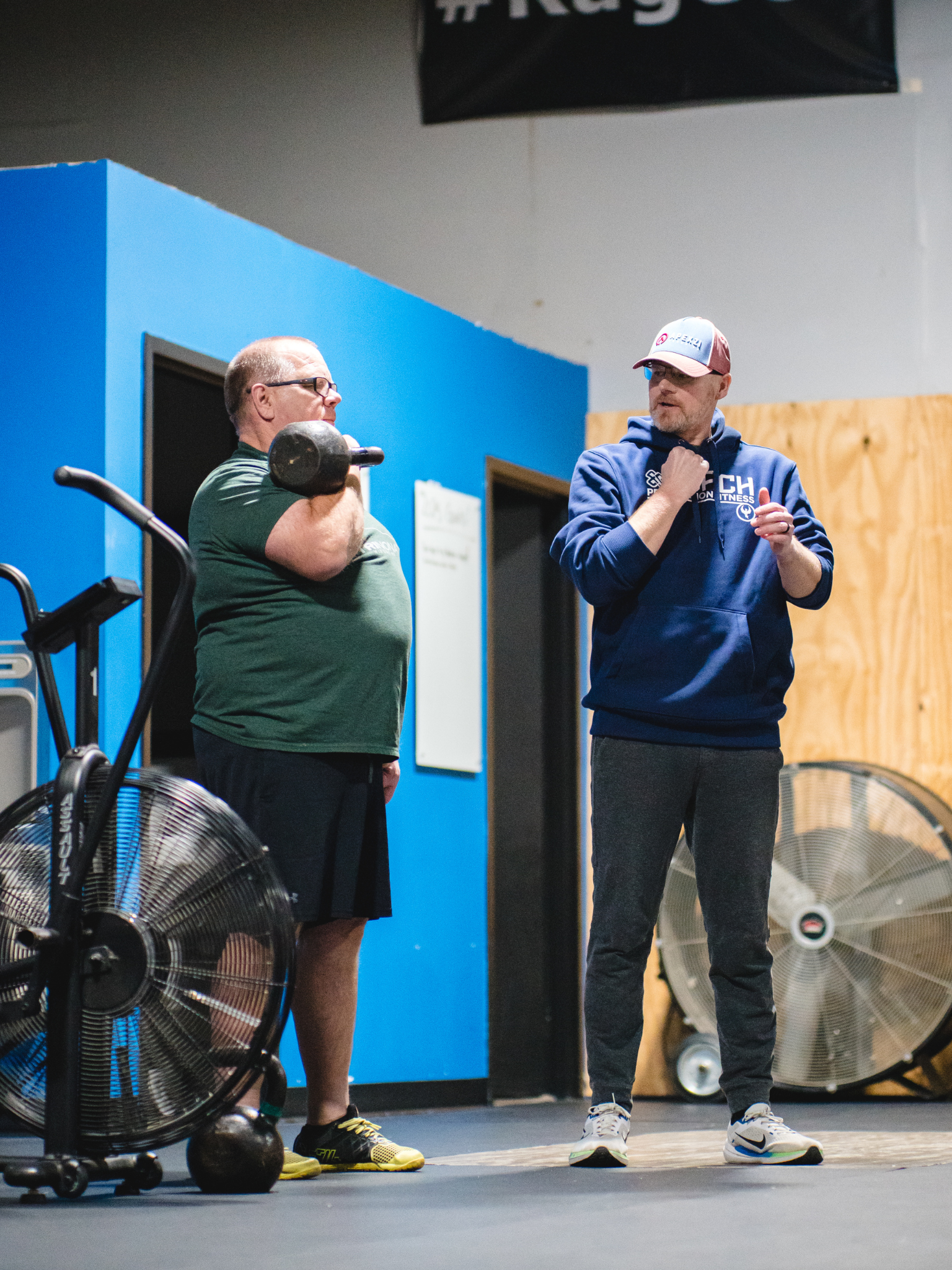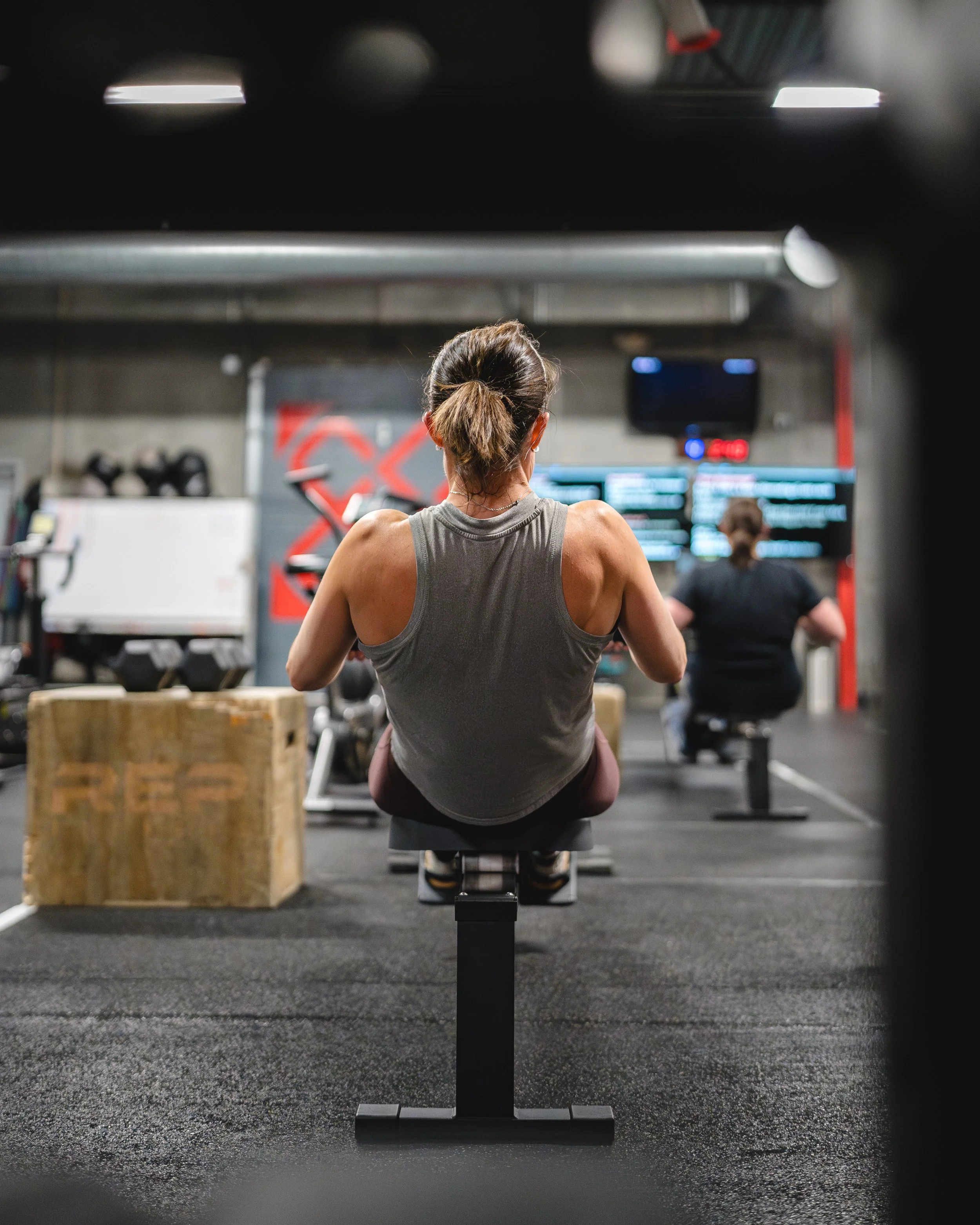
Strength And Conditioning For Adults
Built for Adults. Backed by Experience. Focused on Your Next Chapter.
Explore what we offer
GROUP FITNESS
Our group training is built to prepare you for whatever life throws your way.
Each session delivers a smart, challenging workout that blends proven strength and conditioning methods. Strength is one of our core values—so when you train with us, getting stronger isn’t a possibility, it’s a promise.
REV
Want longer workouts without sacrificing strength? REV is your answer.
Each session delivers 20+ minutes of high-energy training that blends strength and cardio, built for those who want to push further while still building real, lasting strength.
SMALL GROUP COACHING
The perfect blend of group energy and personal attention.
Small group training (3–5 people) pairs you with others who share your goals, guided by a coach fully focused on helping you reach them. It’s individualized support, without the 1-on-1 price tag.
24/7 ACCESS
Can’t make class? Doing your own thing? We’ve got you covered.
Access our space, equipment, and supportive environment to follow your own program—on your time, at your pace, with everything you need to stay on track.
PERSONAL TRAINING
The fastest, most effective way to reach your goals.
With personal training, your coach creates a customized plan tailored to you and holds you accountable every step of the way. Focused. Efficient. Results-driven.
NUTRITION
Strength starts in the kitchen.
Nutrition is the foundation of lasting health and performance. Work one-on-one with a professional coach to build simple, sustainable habits that support your goals—inside and outside the gym.
FILL OUT THE FORM FOR YOUR FREE 10-DAY TRIAL!
Ready to get started?
Fill out the form below, and one of our friendly coaches will reach out to schedule your free 10-day trial, including a quick meeting to ensure we’re the right fit for your goals.

What do people say about us?
Start with a FREE 10-Day Trial
TWO CONVENIENT LOCATIONS
Progression Fitness - West
2625 Hwy 14 W Suite HIJ, Rochester, MN 55901
Progression Fitness - Downtown
25 9½ St SE, Rochester, MN 55904










